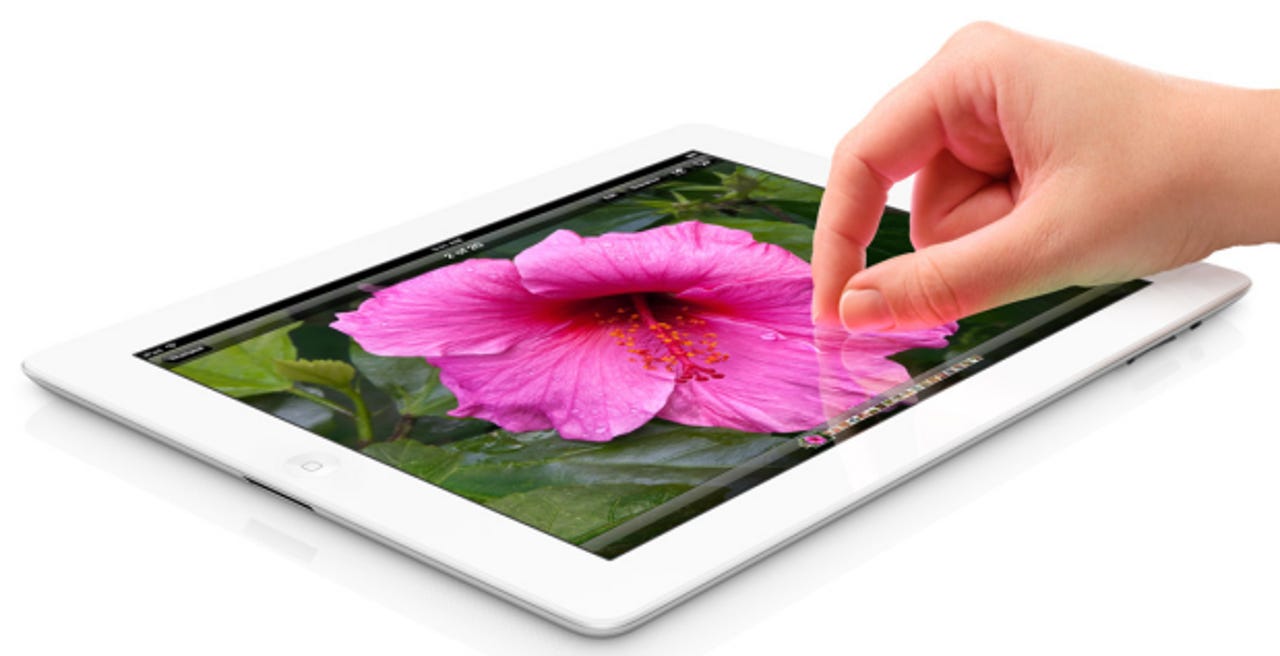Why Apple doesn't need to innovate much to stay ahead of the competition

The rules that apply to everyone else in the industry don't apply to the Cupertino giant. But Apple doesn't need to innovate much to stay ahead of the competition.
To begin with, Apple doesn't seem to be having any problems selling iOS devices. They're flying into the hands of consumers as fast as they are coming off the production line. With a whopping 172 million post-PC devices -- iPhones, iPads and iPod touches -- sold up to the end of 2011, and of that 62 million being shipped in the last quarter of 2011 alone, not only is there a huge pre-existing base of people wanting to upgrade their current iOS device to the newer model, new buyers are also climbing aboard the iOS juggernaut every day.
And it's not just consumers that are embracing iOS devices in their millions, the iPhone and iPad are making huge inroads into enterprise markets too.
Then there's the budget iPad 2, Apple's newest iOS gateway drug. It's only available in one storage capacity of 16GB. At $399 -- compared to $499 for the cheapest new iPad -- the price will not only be an enormous temptation for consumers who have been putting off buying a new iPad, but also it will appeal heavily to anyone thinking about buying iPads in volume.
By keeping the iPad 2 on the market, Apple is engaging in psychological warfare with the competition. It's sending the message that at $399 the year-old iPad 2 can still give whatever new product other companies bring into market a run for their money.
Also, by keeping the iPad 2 on sale, Apple is giving those who bought an iPad 2 over the last few months the feeling that the their purchase isn't obsolete. Apple isn't trying to sell the new iPad to those who bought an iPad 2, but instead it's selling to those who either have yet to buy an iPad, or those who bought a first-generation iPad. This is Apple's business model in other areas, so it's not that much of a leap to imagine that the company will do the same with iOS devices.
Another thing that we need to bear in mind is that post-PC devices are rapidly becoming mainstream and we will soon look at them much in the way that we look at PCs now. We don't expect yearly innovation when it comes to PCs, and there will come a day when we won't expect it of post-PC devices either. There will also come a day when Apple updates the iPhone and iPad much in the same way as it does with iMacs and the MacBook range; silently and with little in the way of fanfare.
The final, and most obvious reason why Apple isn't really under much pressure to innovate is the fact that there's little in the way of competition to the iPad, or the iPhone for that matter. Android might be selling more when it comes to volume, but the Android ecosystem is made of up of a whole bunch of disparate OEMs.
Margins are razor-thin as everyone fights it out and races to the bottom in terms of price to try to capture as much of a market share as possible. I don't see a single Android tablet that rumps the new iPad or the iPad 2 at their respective price points.
The tablet has been pretty much stitched up by Apple and I don't even see Microsoft causing much of a disturbance when Windows 8 ARM tablets start making an appearance. In fact, OEMs will have an enormous challenge on their hands to bring a Windows 8-powered tablet to market that can compete against the iPad on price, battery life, screen quality, performance or portability.
Image credit: Apple.
Related:
- New iPad's most revolutionary feature is its battery
- ZDNet: Meet Apple's new iPad, now with a Retina Display
- Why Apple's iPad rebranding makes sense
- iOS 5.1 available for download
- New iPad is bad news for Android tablets
- iPad 3 will help Apple grab 70 percent of the tablet market in 2012
- How do I securely wipe my iPad for resale?
- CNET Live Blog: Apple iPad announcement
- TechRepublic: Webcast: Let's talk iPad
- New iPads, Apple TV boxes to share ‘A5X' chip (report)
- Will the iPad 3's display let you ‘feel' what's on-screen?
- James Kendrick: Why I will buy a new iPad
- Webcast: ZDNet analysis of the new Apple iPad announcement
- All ZDNet coverage of Apple's iPad
